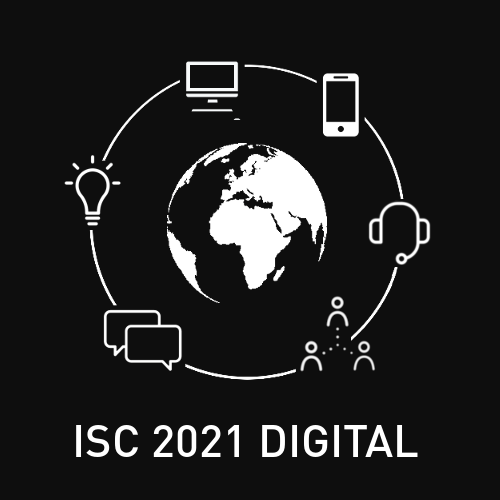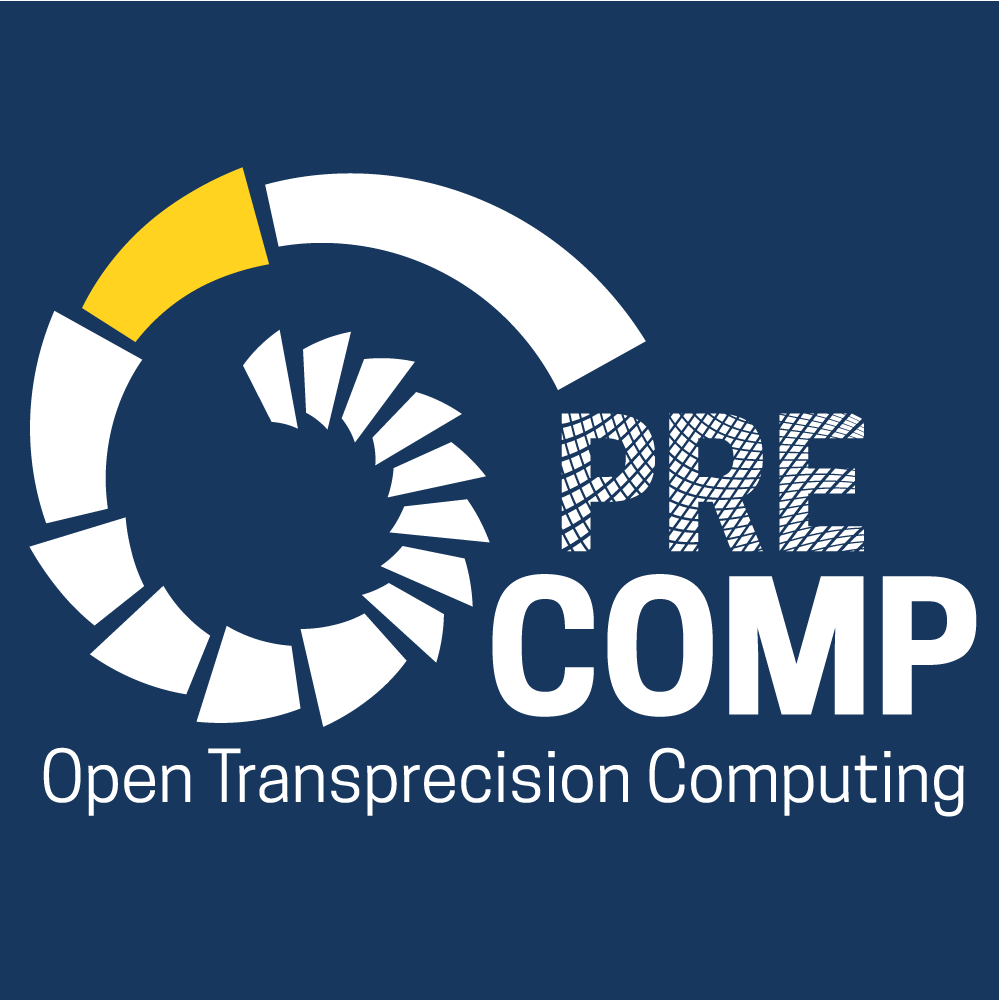ISC HIGH PERFORMANCE 2021
FRIDAY, JULY 2, 2021, DIGITALTHE EVENT FOR HIGH PERFORMANCE COMPUTING, NETWORKING AND STORAGE

WORKSHOP
Approximate and Transprecision Computing on Emerging Technologies (ATCET)ORGANIZERS
Dr Cristiano Malossi
Prof. Luca Benini
Prof. Norbert Wehn
Prof. Roger Woods
Dr Andrew Emerson
Approximate and Transprecision Computing on Emerging Technologies (ATCET) 2nd Edition
In the last 10 years, the demand for new computing strategies driven by energy-efficiency has grown exponentially. Flop-per-watt (thus, per-euro) has become de-facto a driving model in hardware design. Results in this direction have been significant, leveraging first multi-core parallelism and then recently moving toward heterogeneous architectures (e.g., multicore CPU coupled with GP-GPUs). However, these evolutions will not be sufficient in the long term. To maintain an exponential increase in computational efficiency, we will need to rely either on an unlikely breakthrough discovery in hardware technology, or on a fundamental change in computing paradigms.
This workshop is dedicated to experts who explore approximation in hardware and software from both a statistical and a deterministic viewpoint, as a computing paradigm shift to break the current performance and energy-efficiency barriers of systems at all scales, from sensors to supercomputers. Approximate computing is a viable method for building more efficient, scalable and sustainable systems. However, it also places formidable challenges across the entire computing software and hardware stack. Addressing these challenges requires balanced expertise in mathematics, algorithms, software, architecture design and emerging computing platforms. The objective of this workshop is to bring together experts across these areas to present the latest findings and discuss future opportunities for approximate computing. In more detail, the workshop will cover the following areas:
- Approximate and transprecision computing: from the physical limits to the architecture and circuit design; from the algorithm design to the error analysis; from innovative technology to real applications.
- Programming abstractions: from structured and disciplined approximation in computation, communication and data transfers, to quality control and techniques to recover from over-approximation.
- Computing platforms: from tiny low-power devices for IoT applications, up to classical HPC systems embedding imprecise massively parallel accelerator.
- Applications: examples from data analytics, machine learning, deep learning, and scientific computing, where uncompromised quality with scalable order-of-magnitude time- and energy-to-solution reduction is reachable relying on approximation for a significant amount of calculations.
Key Topics
The workshop will cover the following key topics:
- Beyond Moore’s law
- Future challenges for programming models and languages
- Exascale Systems
The workshop provides an opportunity to have in-depth discussions, presentations, and interactions on these topics. This will promote future collaborations and better coordination around the development on approximate and transprecision computing techniques.
Expected Outcomes
- Promote research and development in approximate and transprecision computing
- Align developments in algorithms, software, and hardware design towards unified and successful platforms for approximate and transprecision computing
- Foster a common discussion across multiple disciplines
- Raise energy-awareness in the big data community as well as in HPC
- Promote collaboration between academia, industry and SMEs
- Strengthen the community in energy efficient computing
Agenda
The full agenda is detailed in the following table.
| START | END | Duration | FRIDAY, JULY 2 2021 |
|---|---|---|---|
| 14:00 | 15:00 | 01:00 | Invited Keynote: “Leveraging open source HW for transprecision computing research”, Frank K. Gurkaynak, ETH – Zurich, Switzerland |
| 15:00 | 15:30 | 00:30 | Invited Talk: “Approximate Computing: Test and Reliability issues and opportunities”, Alberto Bosio, École Centrale de Lyon, France |
| 15:30 | 16:30 | 01:00 | Invited Keynote: “Deploying Deep Neural Networks in in the embedded space: Challenges and Opportunities”, Christos-Savvas Bouganis, Imperial College, UK |
| 16:30 | 17:00 | 00:30 | Coffee Break |
| 17:00 | 17:30 | 00:30 | Invited Talk: “On the Resilience of Heterogeneous Memory Systems: Extended Margins, Errors, and New Opportunities for Approximation”, Dimitrios S. Nikolopoulos, Virginia Tech, USA |
| 17:30 | 18:00 | 00:30 | Invited Talk: “Opportunities for Approximate vs Transprecision Computing in High Performance Scientific Computing”, Enrique S. Quintana Ortí, Universitat Jaume I De Castellon, Spain |
Talks
Leveraging open source HW for transprecision computing research
Frank K. Gurkaynak, ETH – Zurich, Switzerland
About 5 years ago when we first started setting up the OPRECOMP project on Transprecision Computing, at ETH Zurich we were at the early stages of our involvement in open source hardware through our PULP project. In only five years, open source hardware has evolved at a tremendous pace, and we are proud to have been part of this movement. In this talk, I will briefly introduce what PULP and open source hardware is and explain how this approach has helped shape the results of OPRECOMP with concrete examples.
Approximate Computing: Test and Reliability issues and opportunities
Alberto Bosio, École Centrale de Lyon, France
Approximate Computing (AxC) is today one of the hottest topics related to system design and optimization. Thanks to this computing paradigm, designers are able to reduce area, power consumption, and even production costs in the case the target application can accept a given degree of inaccuracy in the final computations. This presentation discusses the impact of Approximate Computing on the test and reliability. More in particular, it aims at showing that it is possible to use Approximate Computing to implement low cost but still efficient test mechanisms and fault tolerant architectures to be used in safety-critical applications.
On the Resilience of Heterogeneous Memory Systems: Extended Margins, Errors, and New Opportunities for Approximation
Dimitrios S. Nikolopoulos, Virginia Tech, USA
Memory systems are becoming increasingly heterogeneous, both in terms of the device technologies used to synthesize the main memory of a computing systems, and in terms of their inherent operating parameters. We will explore new results that reveal maximal operating margins for both DDR and NVM technologies and show how operating systems and virtual machine monitors can leverage heterogeneity, non-uniform access and persistence to improve performance and energy-efficiency, as well as scale memory capacity to meed the demand of data-intensive applications. We will also explore how new memory technologies create new opportunities for approximate computing, particularly in the domain of deep learning
Deploying Deep Neural Networks in in the embedded space: Challenges and Opportunities
Christos-Savvas Bouganis, Imperial College, UK
Opportunities for Approximate vs Transprecision Computing in High Performance Scientific Computing
Enrique S. Quintana Ortí
Organising Committee and Contacts
Register Here
Please register to ISC 2021 workshop at this link: https://www.isc-hpc.com/



